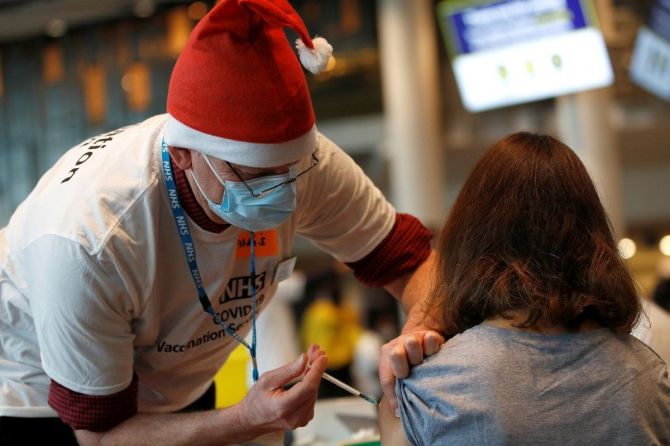A new COVID variant which has descended from the rapidly spreading Omicron and was first flagged in the UK last month is now said to be spreading quickly in the country, according to health authorities in England.

The UK Health Security Agency said EG.5.1, which has been nicknamed Eris, makes up one in seven new COVID cases.
It was classified as a variant on July 31 after its prevalence was recorded in the country due to increasing cases internationally, particularly in Asia.
“EG.5.1 was first raised as a signal in monitoring on July 3, 2023, as part of horizon scanning due to increasing reports internationally, particularly in Asia,” the UKHSA said.
“It was subsequently raised from a signal in monitoring to a variant V-23JUL-01 on July 31, 2023, due to the increasing number of genomes in UK data, and continued growth internationally.
Declaring this lineage as a variant will allow further detailed characterisation and analysis,” it said.
The World Health Organisation started tracking the EG.5.1 variant just over two weeks ago when WHO director-general Tedros Adhanom Ghebreyesus said though people are better protected by vaccines and prior infection, countries should not let down their guard.
There is no indication that the new variant is any more severe as the latest UKHSA data suggests it now accounts for 14.6 per cent of all COVID cases in the country, even as COVID-19 case rates continued to increase.
There were 5.4 per cent of 4,396 respiratory specimens reported through the UKHSA's Respiratory DataMart System as COVID-19, compared to 3.7 per cent of 4,403 from the previous report.
“We continue to see a rise in COVID-19 cases in this week's report. We have also seen a small rise in hospital admission rates in most age groups, particularly among the elderly. Overall levels of admission still remain extremely low and we are not currently seeing a similar increase in ICU admissions. We will continue to monitor these rates closely,” said Dr Mary Ramsay, UKHSA's head of immunisation.
“Regular and thorough hand washing helps protect you from COVID-19 and other bugs and viruses. If you have symptoms of a respiratory illness, we recommend staying away from others where possible,” she said.
The UKHSA maintains a regular 'Flu and COVID-19 surveillance report', tracking emerging new variants and monitoring variants classified as being of concern. The Arcturus XBB.1.16 variant, also a descendant of Omicron, remains the most dominant in the UK.










